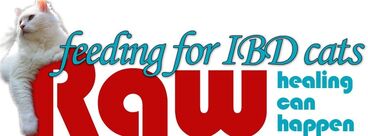- Joined
- Jan 29, 2019
- Messages
- 33
- Purraise
- 82
Hi all,
I'm back again and I hope I'm not being too redundant as I know there are plenty of IBD articles and threads. But my Maggie is such an odd case, and while I mostly trust my vet, I really just want to get this off my chest. Any advice would be welcome and appreciated, but hopefully I'll feel better for having written it out.
A too-long history: Maggie is almost 3 years old. She's young and she's almost always had GI problems. She started throwing up frequently in March of this year, and after several blood tests that all came back negative we tried a hypoallergenic diet (RC dry food) that seemed to fix things for a month or two. You can see that in my post history.
Unfortunately, she began to vomit again, and in mid-July she had a massive health crisis. Stopped eating, vomited bile a dozen times - I took her to the emergency vet where she stayed for five days. Got a diagnoses of pancreatitis. She had IV fluids, xrays, an ultrasound, anti-nausea meds, appetite stimulants, painkillers, you name it. She still wouldn't eat. Eventually I brought her home with the hope that she would eat if she were more comfortable. I'll be honest, I was preparing myself to put her down. She had dropped almost a pound (and she only weighed 7lbs to start), she wasn't eating, drinking, she refused to be pilled... But she turned it around. Started eating, used the litter box. I was hopeful.
Well, long story short, she started getting unbelievably nauseous again just a few days later, and began vomiting. I won't go into too much detail, but even with anti-nausea shots from the vet, the nausea was unbearable. She would drool and gag and cry, pacing nonstop. I stayed up with her all night for days, until i finally decided to try surgery. In her xrays and ultrasound the emerg vet had noticed a small shadowing in her small intestine that seemed to be moving a little, and I wanted to try non-invasive options first. But without other options, we went for surgery. The vet removed a hairball about 5cm long. A normal size. They did a biopsy at the same time and later confirmed IBD. The vet was skeptical the hairball was the root cause, but Maggie improved as she recovered.
So here we are. Almost two months later. Maggie has put on weight and eats well, but she throws up roughly every two weeks, and we're going back to the vet on Tuesday because she started leaving the litter box without urinating. Guys, I'll be real with you. I love this cat more than anything in the world, but I've spent upwards of $6k on vet bills in the past two months alone. I can afford it without worrying right now, but I'm not a freaking millionaire. I'm young and trying to save. More importantly, I can't keep putting my cat through this. Those five days at the emergency vet were so hard on her. I couldn't visit because of COVID. The day I brought her home she crawled into my lap and fell dead asleep for almost 12 hours.
There's no crisis here. I just feel like I haven't gotten to the bottom of Maggie's health problems, and I'm so tired and scared of what her future might hold. She's so young. The past month has felt like a blessing, bonus time I didn't think we'd get, but I can't stay in this limbo forever. I haven't spent a single night away from her since this happened, but I'd like to live my life again at some point.
If you made it this far, thank you for reading. It feels good to get this off my chest and into the world of caring cat people. Maggie is truly my baby and and watching her suffer rips my heart out of my chest.
I'm back again and I hope I'm not being too redundant as I know there are plenty of IBD articles and threads. But my Maggie is such an odd case, and while I mostly trust my vet, I really just want to get this off my chest. Any advice would be welcome and appreciated, but hopefully I'll feel better for having written it out.
A too-long history: Maggie is almost 3 years old. She's young and she's almost always had GI problems. She started throwing up frequently in March of this year, and after several blood tests that all came back negative we tried a hypoallergenic diet (RC dry food) that seemed to fix things for a month or two. You can see that in my post history.
Unfortunately, she began to vomit again, and in mid-July she had a massive health crisis. Stopped eating, vomited bile a dozen times - I took her to the emergency vet where she stayed for five days. Got a diagnoses of pancreatitis. She had IV fluids, xrays, an ultrasound, anti-nausea meds, appetite stimulants, painkillers, you name it. She still wouldn't eat. Eventually I brought her home with the hope that she would eat if she were more comfortable. I'll be honest, I was preparing myself to put her down. She had dropped almost a pound (and she only weighed 7lbs to start), she wasn't eating, drinking, she refused to be pilled... But she turned it around. Started eating, used the litter box. I was hopeful.
Well, long story short, she started getting unbelievably nauseous again just a few days later, and began vomiting. I won't go into too much detail, but even with anti-nausea shots from the vet, the nausea was unbearable. She would drool and gag and cry, pacing nonstop. I stayed up with her all night for days, until i finally decided to try surgery. In her xrays and ultrasound the emerg vet had noticed a small shadowing in her small intestine that seemed to be moving a little, and I wanted to try non-invasive options first. But without other options, we went for surgery. The vet removed a hairball about 5cm long. A normal size. They did a biopsy at the same time and later confirmed IBD. The vet was skeptical the hairball was the root cause, but Maggie improved as she recovered.
So here we are. Almost two months later. Maggie has put on weight and eats well, but she throws up roughly every two weeks, and we're going back to the vet on Tuesday because she started leaving the litter box without urinating. Guys, I'll be real with you. I love this cat more than anything in the world, but I've spent upwards of $6k on vet bills in the past two months alone. I can afford it without worrying right now, but I'm not a freaking millionaire. I'm young and trying to save. More importantly, I can't keep putting my cat through this. Those five days at the emergency vet were so hard on her. I couldn't visit because of COVID. The day I brought her home she crawled into my lap and fell dead asleep for almost 12 hours.
There's no crisis here. I just feel like I haven't gotten to the bottom of Maggie's health problems, and I'm so tired and scared of what her future might hold. She's so young. The past month has felt like a blessing, bonus time I didn't think we'd get, but I can't stay in this limbo forever. I haven't spent a single night away from her since this happened, but I'd like to live my life again at some point.
If you made it this far, thank you for reading. It feels good to get this off my chest and into the world of caring cat people. Maggie is truly my baby and and watching her suffer rips my heart out of my chest.





